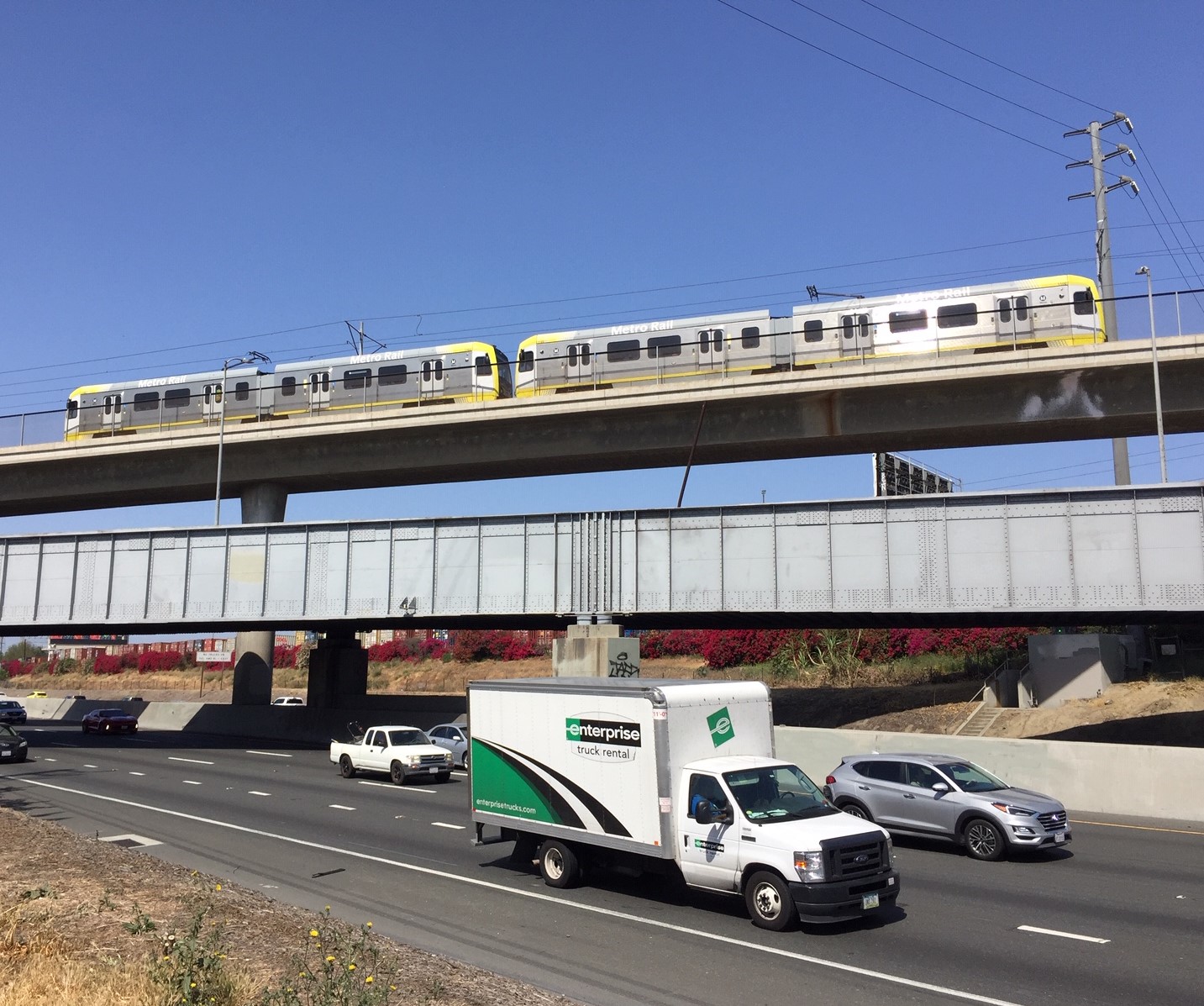Yesterday and this morning, Metro's 710 Freeway widening task force hosted "listening sessions," billed as "a conversation with community members on how the work of the task force can best reflect your community's needs, goals, and priorities and how we can further engage the people that live and work in the corridor to bring their input into this process."
The big news Metro announced in these listening sessions: the formation of a 710 Freeway Community Advisory Committee.
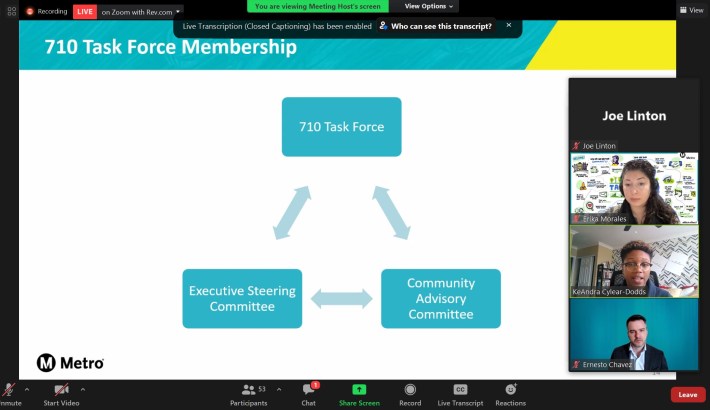
Folks interested in serving on Metro's new 710 widening Community Advisory Committee should submit an application to Metro. Details forthcoming at Metro's 710 project page.
But, wait, "710 Community Advisory Committee" sounds familiar.
That's because Metro and Caltrans convened a 710 CAC from around 2004 through 2015. That's the CAC where community folks opposed Metro's plan to widen the 710. But Metro ignored the CAC and those community concerns and pushed forward with a freeway widening plan that would have polluted the air and demolished neighborhoods. Mercifully, opposition from neighborhoods, the federal government, the state government, and the Metro board eventually put an end to that plan.
But last January, Metro pointed to that earlier CAC process as evidence that its harmful plan to widen the 710 had resulted from a "Community-Driven Process."
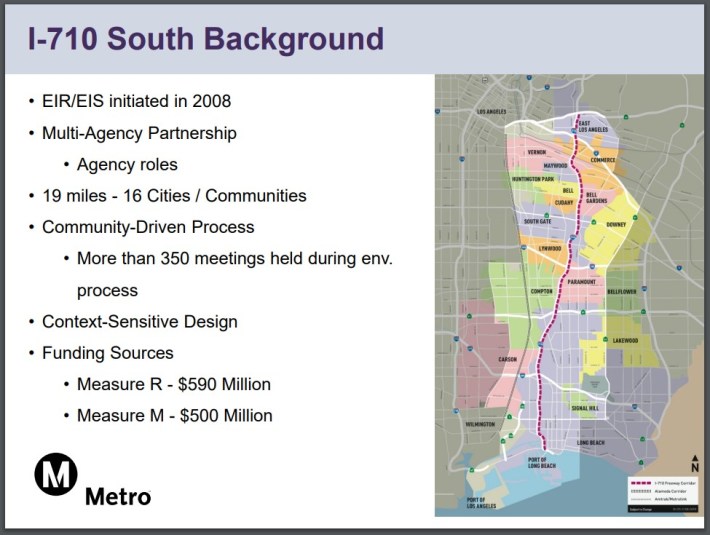
Metro touted "more than 350 meetings held during [environmental] process" that led to a "Context-Sensitive Design."
A note on the timeline here: The EPA stated that on November 20, 2020, it shared its 710 ruling "with senior leadership meeting with Caltrans, Metro, and the Federal Highway Administration." Two months later - on January 20, 2021, Metro was out presenting to the public without acknowledging that the EPA had already nixed Metro's plan. At the time, Metro was sharing a project timeline that anticipated the board would approve project environmental documents in Fall 2021. Mercifully, this didn't happen.
With Metro slathering its new 710 task force messaging with a veneer of "community" and "equity," what hope is there that this new CAC will be any different than the past couple decades of 710 CACs? It's hard not to feel that one more CAC is just one more opportunity for Metro to waste the community's time and try to run out the clock in hope that the current heat on the project dies down.
There are some reasons for some optimism, however. Metro's new leadership - including CEO Stephanie Wiggins and this year's board chair County Supervisor Hilda Solis - have spoken out about the past harms done by freeway building, and about the need for Metro to focus on equity now. Metro has hired its first Officer of Equity and Race, KeAndra Cylear Dodds, who has been a big part of its 710 task force to date. CEO Wiggins has also taken some steps to reform the Metro Highway Program.
But there are also reasons for pessimism. Though Wiggins has to know better, last week she touted a Metro suburban freeway widening project as a regional and state model for truly equitable outcomes. The same staffer, Metro Highway Program Director Ernesto Chaves, who failed to mention the EPA ruling at January's community meeting is presiding over Metro's listening sessions this week.
At the listening sessions yesterday and today, Chaves and other Metro representatives repeatedly emphasized community and equity.
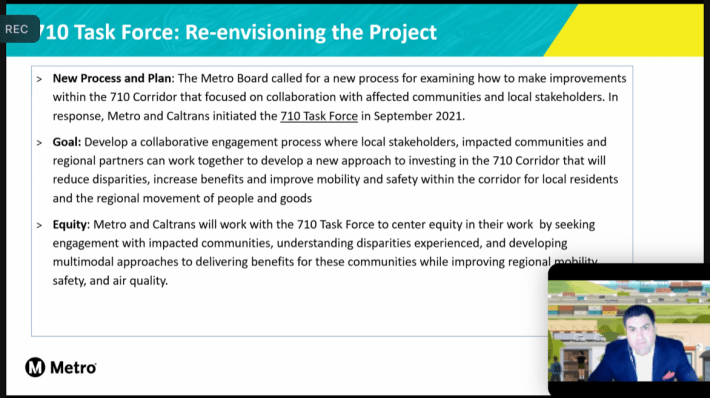
A couple dozen commenters had their say at the sessions. Callers expressed concerns including air and noise pollution and increased congestion, and were critical of Metro's outreach process, including the proliferation of committees. Callers expressed support for electrification, and for investments in transit, walking, and bicycling.
Some of Metro's responses do appear to indicate a new approach. Last night, responding to a concern over home demolitions (up until May 2021 Metro's plan had been to demolish more than 200 parcels - mostly homes), a Metro representative stated that "tearing down homes, businesses, legacies" is a "non-starter."
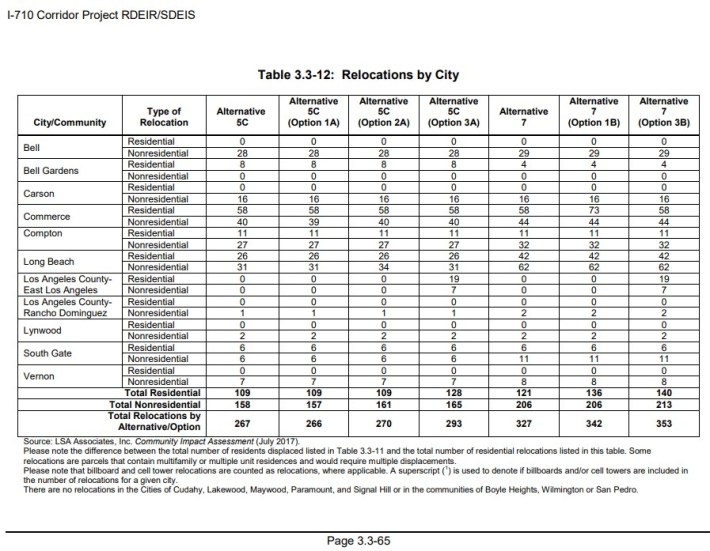
Streetsblog reached out to East Yards Communities for Environmental Justice Co-Executive Director Laura J. Cortez, who expressed several project and process concerns at last night's meeting. Cortez noted that she was struck by an either/or framing expressed by Michael Cano, Metro Deputy Executive Officer for Goods Movement. Cortez notes that the Coalition for Environmental Health and Justice (CEHAJ) "fully supports truck drivers and workers" and pushes to center community health, including uplifting the conditions of workers; she was concerned that Cano framed the project "like a balancing act" of commerce vs. community "instead of a multi-method strategy to a win-win situation."
Stay tuned - probably for another decade - to find out if Metro's latest 710 messaging is sincere, or just another iteration of the past couple decades of lip service to a community-driven process.
And, if you don't have enough meetings in your life, the third meeting of Metro's 710 widening task force will be next Monday, December 13, from 5-7:30 p.m. Access and other meeting details are at Metro's meeting page.
